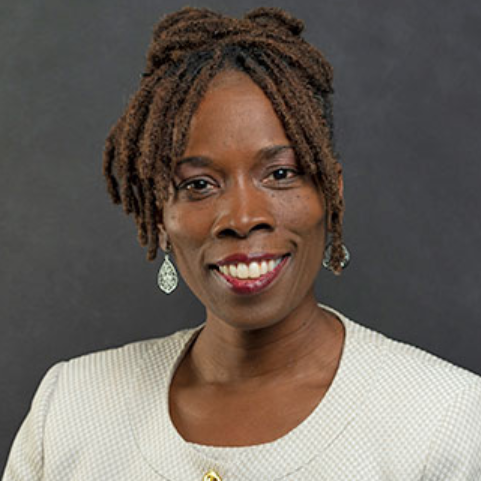Trauma and Awakening: Psychology’s Call for Racial Justice (1.5 CE)
Facilitator: Diana Concannon, Psy.D.
Presenters: Alicia del Prado, Ph.D., Thema Bryant-Davis, Ph.D., Daniel Blumberg, Ph.D.
12:00 PM - 1:30 PMTue
Registration Required
Your registration must include one of the required registration options to attend this session. [ Details ]
Speakers
 Bryant-Davis, Thema Ph.D.
Bryant-Davis, Thema Ph.D.
Professor, Psychology Division, Graduate School of Education and Psychology
Pepperdine University
 Blumberg, Daniel Ph.D.
Blumberg, Daniel Ph.D.
Associate Professor, California School of Professional Psychology
Alliant International University, San Francisco
 Concannon, Diana M. Psy.D., President, NCSPP
Concannon, Diana M. Psy.D., President, NCSPP
Associate Provost, Strategic Initiatives and Partnerships; Dean, California School of Forensic Studies; Director, California Psychology Internship Consortium
Alliant International University, San Diego
Sponsors
 Alliant International University California School of Professional Psychology
Alliant International University California School of Professional Psychology
Documents
During this historic time of amplified trauma and awakening, we are challenged to concurrently hold rage and opportunity, pain and healing, the silence of listening and the call to action.
Our Racial Justice panel will share perspectives on the impact of the current sociopolitical climate on individuals, families, communities, and systems, and discuss the potential influence of psychologists during this time. The discussion will include a critical examination of the implications of current events for the education and training of future psychologists.
Learning Objectives
Participants will be supported to:
1. Describe some of the impacts of the current racial awakening on individuals, families, communities, and systems.
2. List ways in which psychology and psychologists can contribute to the opportunities inherent in the current challenges.
3. Articulate a vision for education and training of future psychologists that more boldly considers the implications of present sociopolitical events.
RESOURCES
Note: Those articles designated with an asterisk are provided in full-text form here on the session Eventleaf link.
*Blumberg, D. M., Papazoglou, K., & Schlosser, M. D. (2020). Organizational Solutions to the Moral Risks of Policing. International Journal of Environmental Research and Public Health, 17(20). https://doi.org/10.3390/ijerph17207461
*Blumberg, D. M., Schlosser, M. D., Papazoglou, K., Creighton, S., & Kaye, C. C. (2019). New Directions in Police Academy Training: A Call to Action. International Journal of Environmental Research and Public Health, 16(24). https://doi.org/10.3390/ijerph16244941
Bryant-Davis, T. (2019). The cultural context of trauma recovery: Considering the posttraumatic stress disorder practice guideline and intersectionality. Psychotherapy, 56(3), 400–408. https://doi.org/10.1037/pst0000241
Bryant, D. T., Adams, T., Alejandre, A., & Gray, A. A. (2017). The Trauma Lens of Police Violence against Racial and Ethnic Minorities. Journal of Social Issues, 73(4), 852–871. https://doi.org/10.1111/josi.12251
Kim, A. & del Prado, A. It’s Time to Talk (And Listen): How to Have Constructive Conversations about Race, Class, Sexuality, Ability, and Gender in a Polarized World. New Harbinger Publications, Inc. Oakland, CA.
Sue, D. W., Alsaidi, S., Awad, M. N., Glaeser, E., Calle, C. Z., & Mendez, N. (2019). Disarming racial microaggressions: Microintervention strategies for targets, White allies, and bystanders. American Psychologist, 74(1), 128.
